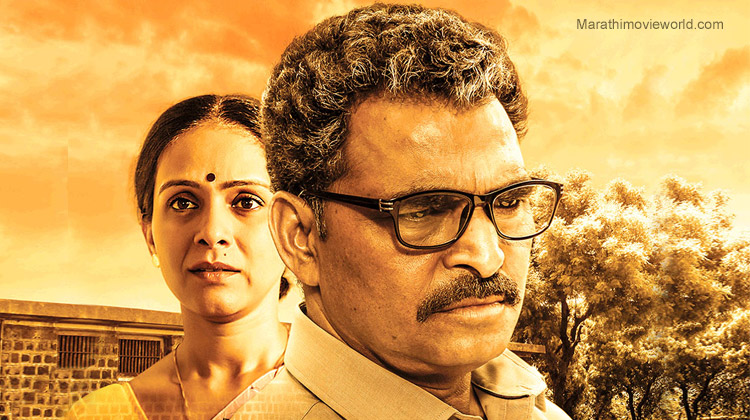‘Babanchi Shala’ artistically deals with a distinct social issue
 |
Rating: ★★★ ½
Genres: Drama Censor: U/A Duration: 130 min Studio/presenter: Idea Entertainment Producer(s): Vilas Mane, Umesh Nathani Director: R. Viraj Writer: Neela Satyanarayan Music: Soham Pathak, Kamlesh Bhadkamkar, Neela Satyanarayan Cinematographer (DOP): Ankush Birajdar Cast: Sayaji Shinde, Aishwarya Narkar, Shashank Shende, Kamlesh Sawant, Chhaya Kadam, Arti More, Umesh Bolake, Milind Adhikari, Kartik Chavan, Manjula Khetri, Kavita Chavan, Shreyas Raje Movie Review by: Ulhas Shirke |
Known for their strong levelheaded subjects, Marathi films have gone worldwide, through screening at various international film festivals. Our progressing country is in urgent need of thoughtful democratic reforms. And, our feature films can play this important role, of passing a social message. New Marathi film ‘Babanchi Shala‘, presents the story written by Neela Satyanarayan, a former IAS officer from Maharashtra. Directed by R.Viraj, who gave us variety of films like ‘Shyamche Vadil ‘, ‘Sangharsh‘ and ‘Vajlach Pahije Game …’ the film is inspired by V.Shantaram’s memorable film ‘Do Ankhen Barah Haath‘ made in 1957. The only difference is that in the old film, the Jail warden tries to rehabilitate the dangerous prisoners released on parole, while in the latest film, the Jailer goes out of his way, to rehabilitate those prisoners, who are not hardened criminals, but have committed a crime for the first time.

The story of this film revolves around Mahipat Ghorpade (Shashank Shende) who murders his nagging wife, who keeps on abusing him, for spending money on educating their only little daughter Sonali( Gauri Deshpande). One day, when his wife with the support of his mother in law, enter into an argument over the same issue, Mahipat locks his wife inside a room and murders her. He later repents his mistake, as he is taken to custody. After going to Jail, Mahipat has to leave his little daughter behind, at the mercy of others, who ill treat her. Sonali, later undergoes a trauma. But, she timely receives helping hand from a social worker Neeta Satam ( Chhaya Kadam), who persuades Jailer Shrikant Jamkhede(Sayaji Shinde), to arrange a meeting between father and daughter, after almost six years.
Initially, reluctant to accede to such a request, the Jailer and his wife ( Aishwarya Narkar) face a strange happening in their own life too. And, this changes the outlook of the Jailer. He not only tries to understand the trauma that Mahipat undergoes, but also the situation faced by few other prisoners in his jail and their family members. He submits a plan to Home Minister, through social worker Neeta Satam; about his scheme( Babanchi Shala) to rehabilitate such prisoners. But, it gets rejected. Going out of his way, he plans to implement his plan, in his own way. He partly succeeds in it. But, one of the prisoners, foils his plan, resulting into inquiry against Jailer and Neeta Satam .When the jailer is suspended, he continues with his good work with the help of the social worker, in extension of her services.
The film sends across a good message to the society, which in general, is not ready to accept the children and relatives of such prisoners, with any favors. Through different characters and emotion filled sequences in this film, the writer and the director have shown, how the life of family members also gets affected. Good presentation of screenplay, well suited dialogues to all the characters and above all wonderful performances by Sayaji Shinde, Shashank Shende, Chhaya kadam, Kamlesh Sawant and others, make this film a worth watch.
To nullify the effect of seriousness of the film’s subject , the director has cleverly offered some humor filled dialogues to Kamlesh Sawant, who plays one of the jail inmates, Babu Sakpal. Music by Soham Pathak & Neela Satyanarayan is apt, to meet the requirement of the subject. Don’t compare this film with V.Shantaram’s ‘Do Ankhen Barah Haath’, as it has offered something more, to make the audience think, in terms of reforms in the jail. All the prisoners are not terrorists. Majority of them are guilty of crime committed by them, for the first time. And therefore, the rehabilitation of their relatives, during their jail sentence, would help in contributing something to the society.



